Corn is considered both a starchy vegetable and a celereal grain
Corn is considered both a starchy vegetable and a celereal grain
Corn is also known as maize (zea mays). Corn is a popular cereal grain in the world, a source of fiber, vitamins, minerals and antioxidants. It is said to promote eye and digestive health. Popcorn and sweet corn are popular foods, but being refined, they provide fewer health benefits than whole grain corn.
People classify corn as both a starchy vegetable and a cereal grain. Sweet corn that we eat on the cob is usually considered a vegetable (the fruit is harvested when young or mature with the full of liquid and soft seeds) in the culinary world. When mature fruit is harvested, dried corn seeds are classified as whole grains.
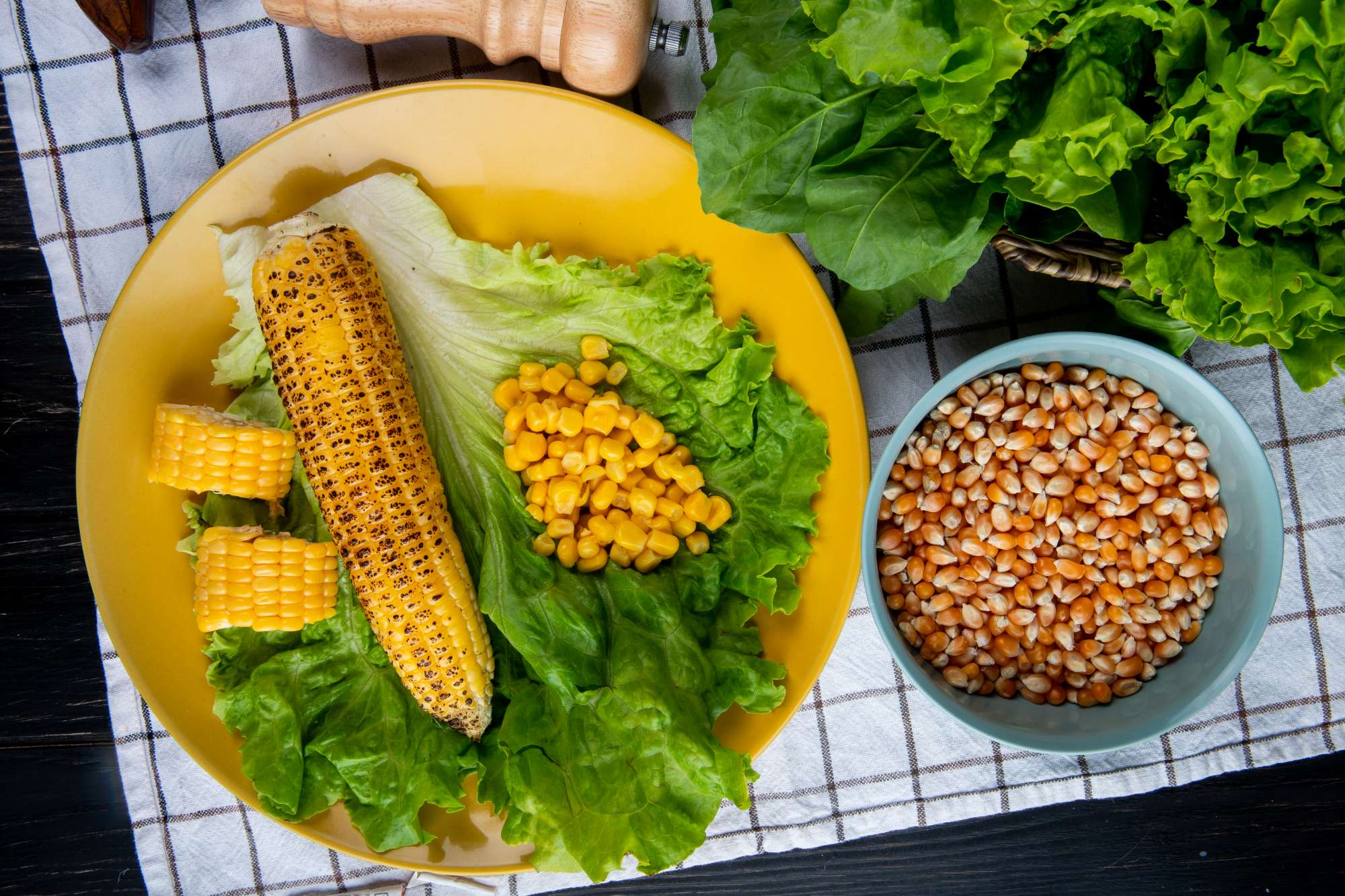
Corn originated in Mexico and was originally known by the name “maize” in many parts of the world. Farmers in southern Mexico first cultivated corn about ten thousand years ago from a wild grass called teosinte. Teosinte seeds are much smaller than modern corn seeds. As farmers carefully chose which corn seeds to replant, corn evolved into the version you know today.
Native Americans grew and harvested this plant as their primary food source. Europeans who came to New England learned about it and brought it back to their homeland. Pilgrims in the Plymouth Colony and members of the Wampanoag Tribe probably ate corn at the first Thanksgiving dinner in 1621. Today, it is one of the most widely consumed grains. all around the world. Corn seeds are usually milky white or light yellow but also come in red, purple and blue.
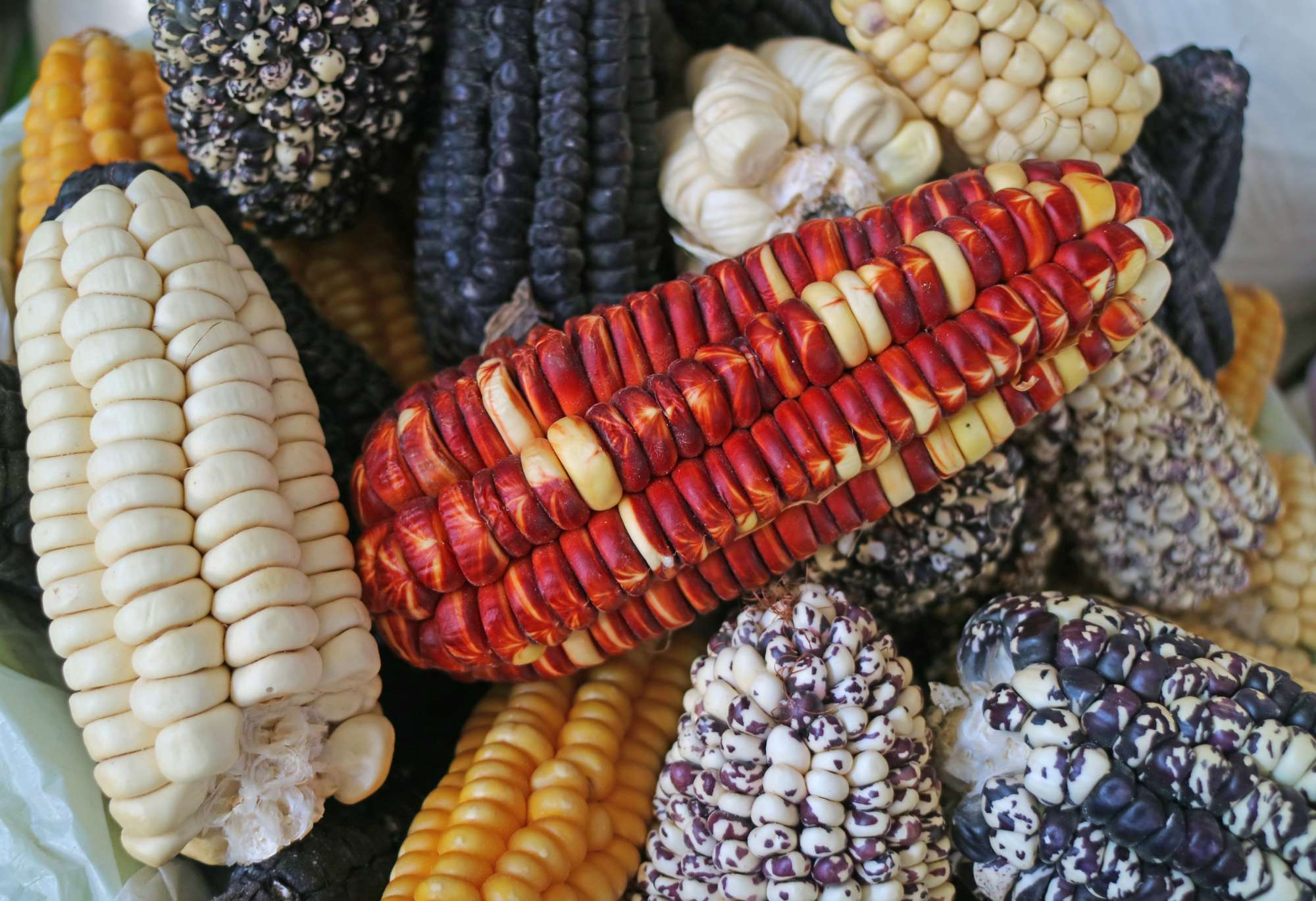
Corn sometimes gets a bad rap because it has a lot of natural sugar and carbs. But don't overlook the health benefits of this versatile veggie. As corn is naturally gluten-free, it’s a good choice to use in place of wheat. It’s also loaded with important vitamins, minerals, and antioxidants, which can help your health in a number of ways.
KINDS OF CORN
1. Sweet corn
The corn fruit is mature but the seeds are still fresh and soft, this is the type you eat at cookouts; it comes in yellow, white, or a combination of the two colors and has a mildly sugary taste.
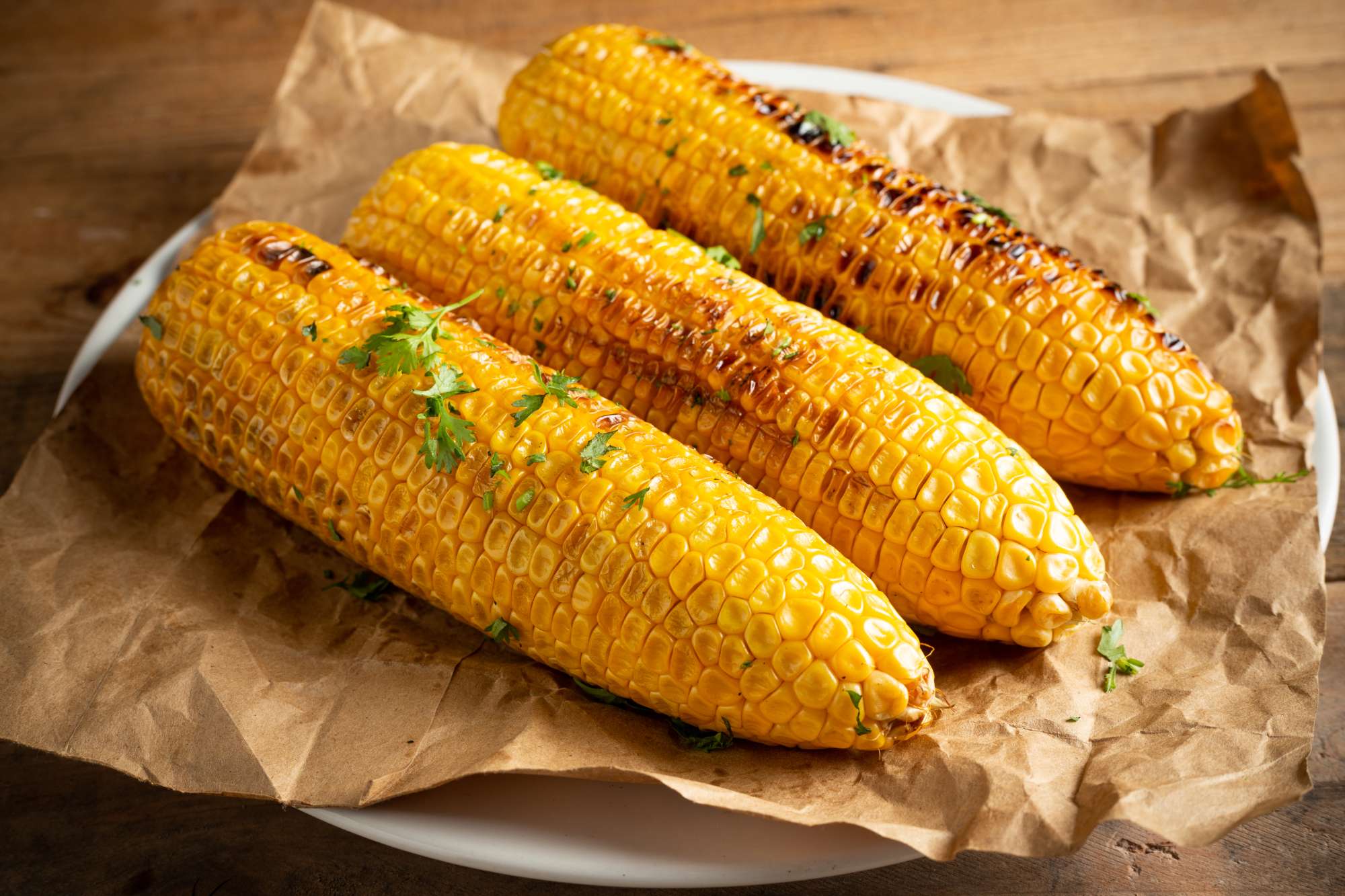
.jpg)
2. Flint or Indian corn
This is harder than sweet corn. It comes in red, white, blue, black, and gold colors. Flint corn grows in Central and South America and can be ground for cornmeal, corn flour, or hominy. In the U.S., it's used mainly for fall decorations.
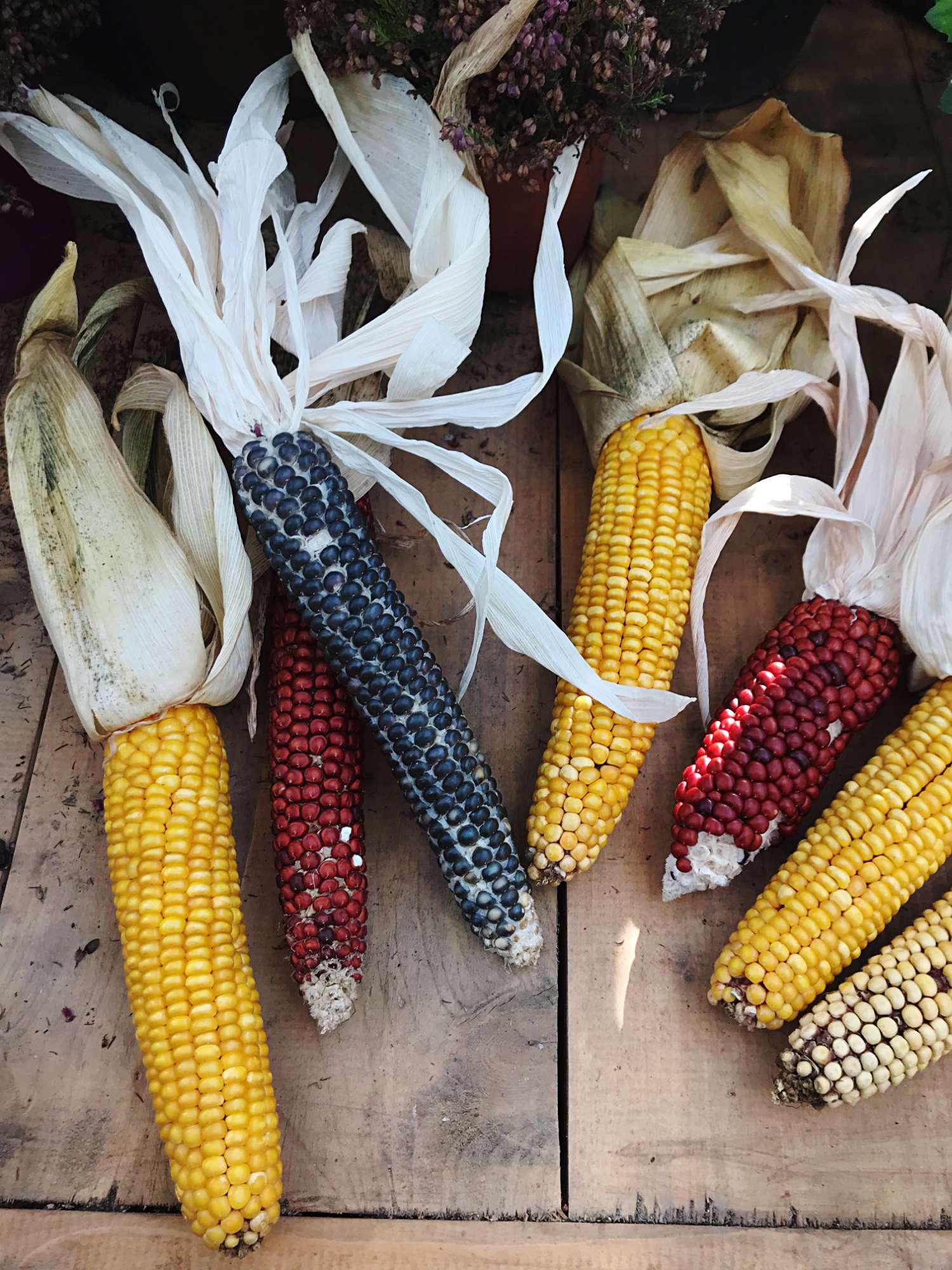
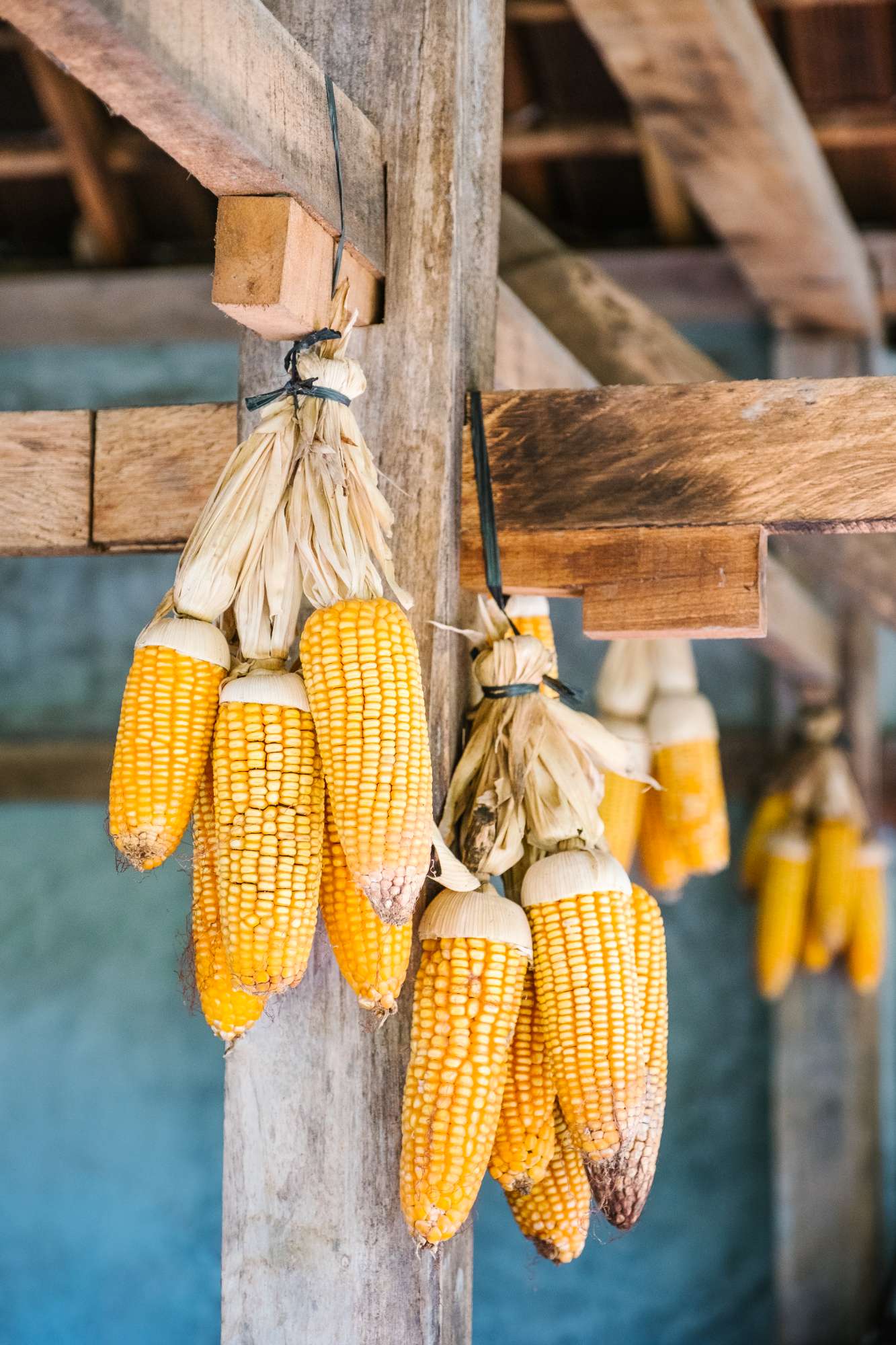
3. Popcorn
This is a type of flint corn. Before you prepare it, popcorn has a soft, starchy center surrounded by a hard gold-colored shell. Inside is a tiny drop of water. When you heat popcorn in a pan or in your microwave, the moisture inside gives off steam. Pressure from the steam builds to the point where the kernel explodes, and the center opens into a fluffy white nugget.
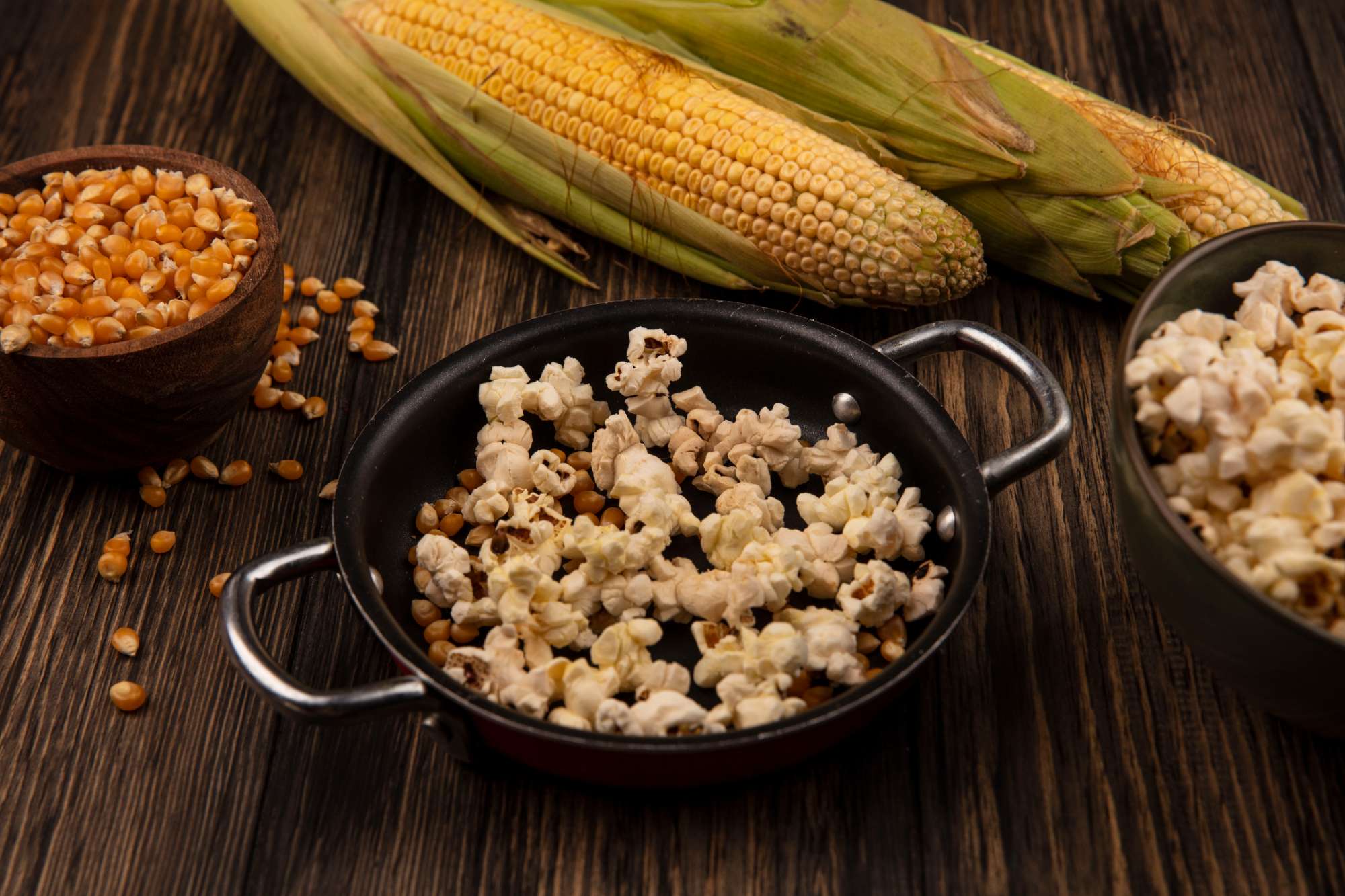
4. Dent corn
This comes in white and yellow and has a dent in the top of each kernel. Its main uses are as animal feed and manufactured foods, like tortilla chips and grits.
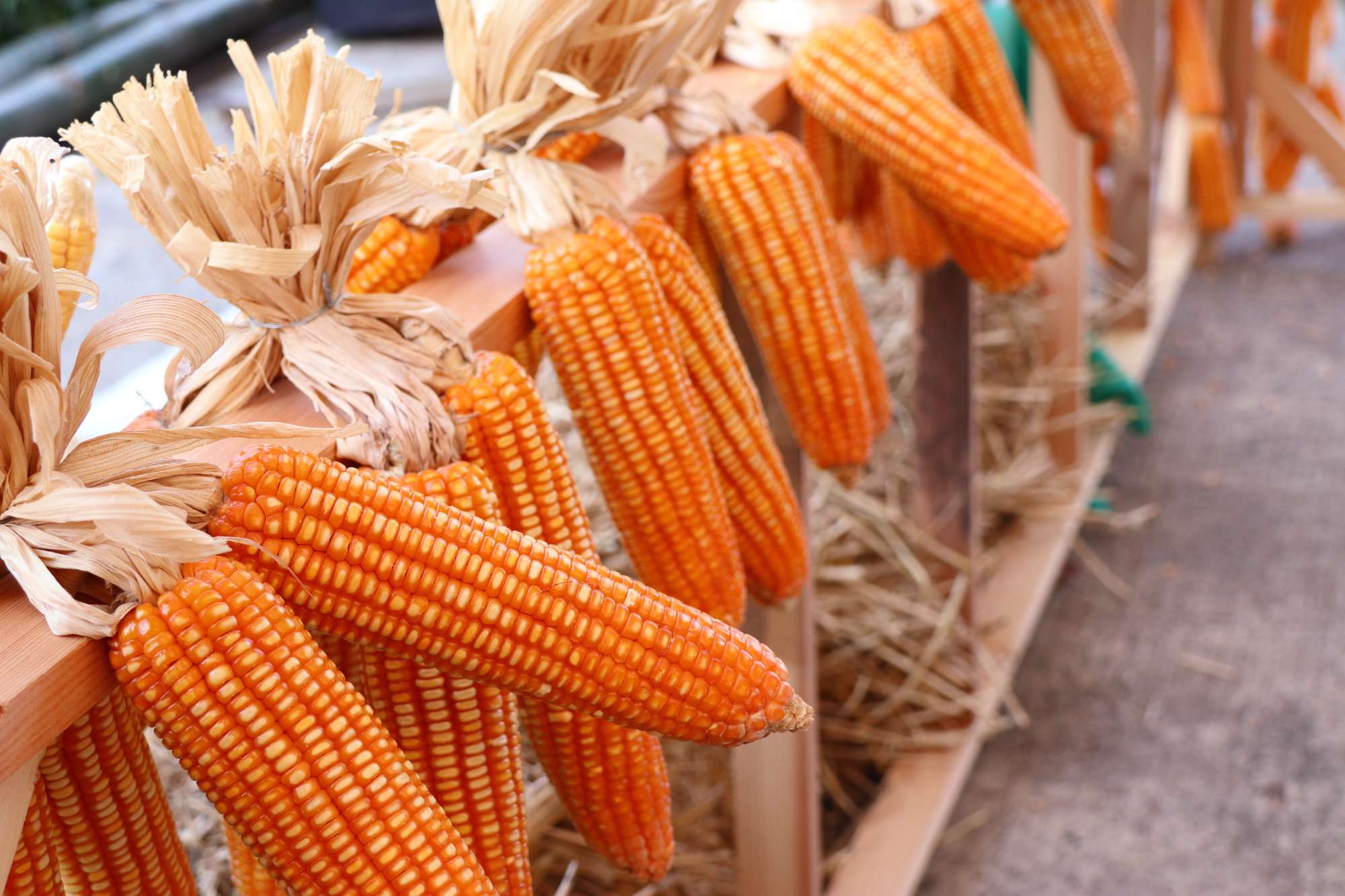
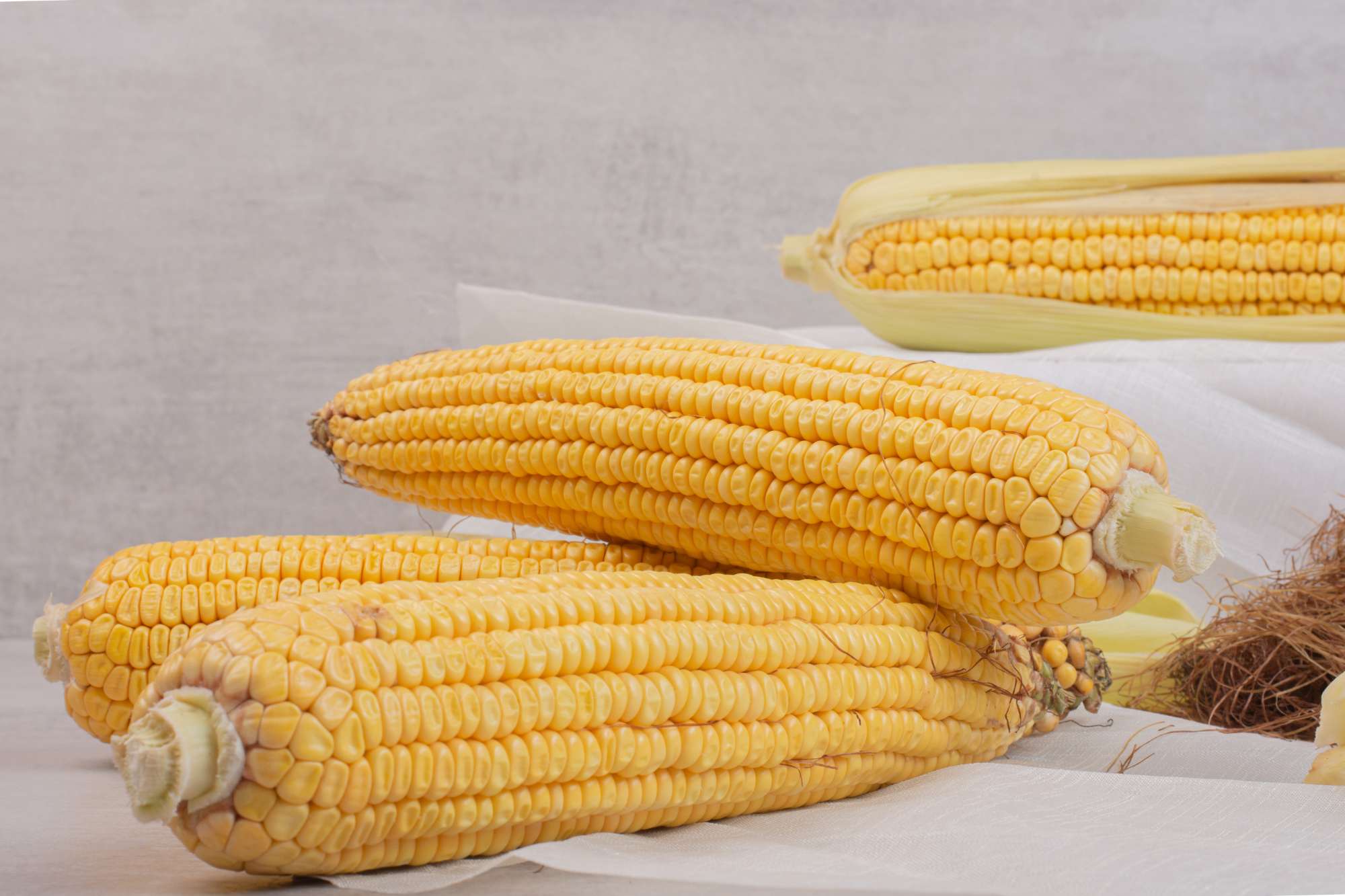
NUTRITIOUS VALUE
Corn is high in carbs and packed with fiber, vitamins and minerals. It’s also relatively low in protein and fat. One cup khoảng 164 grams of sweet yellow corn contains: Calories: 177 calories, Carbs: 41 grams, Protein: 5.4 grams, Fat: 2.1 grams, Fiber: 4.6 grams, Vitamin C: 17% of the daily value (DV), Thiamine (vitamin B1): 24% of the DV, Folate (vitamin B9): 19% of the DV, Magnesium: 11% of the DV, Potassium: 10% of the DV
Corn also contains vitamin B6, a nutrient necessary for maintaining healthy levels of pyridoxine. Pyridoxine deficiency can cause anemia and may increase the risk of developing heart disease, depression, and premenstrual syndrome. Corn is also rich in vitamin C, an antioxidant that helps protect your cells from damage and wards off diseases such as cancer and heart disease.
Corn has smaller amounts of vitamins B, E, and K, along with minerals such as potassium. Potassium helps regulate the circulatory (blood) system, maintaining adequate blood flow and a strong heartbeat. Low potassium levels may lead to a potentially serious condition called hypokalemia. Eating corn is a great way to get more manganese, phosphorus, iron, zinc.
You need to know that most of the carbs in corn come from starch which can quickly raise your blood sugar, depending on how much you eat. However, it’s also high in fiber that can help balance your blood sugar levels.
Due to its impressive nutrient profile, most people can benefit from eating whole corn and popcorn as part of a balanced diet. It’s also a naturally gluten-free food and can be eaten by those who avoid gluten.
On the other hand, processed corn products may not be very nutritious, as refined oil, syrup and chips lose beneficial fiber and other nutrients during production. Also, many processed products are high in added salt, sugar or fat.
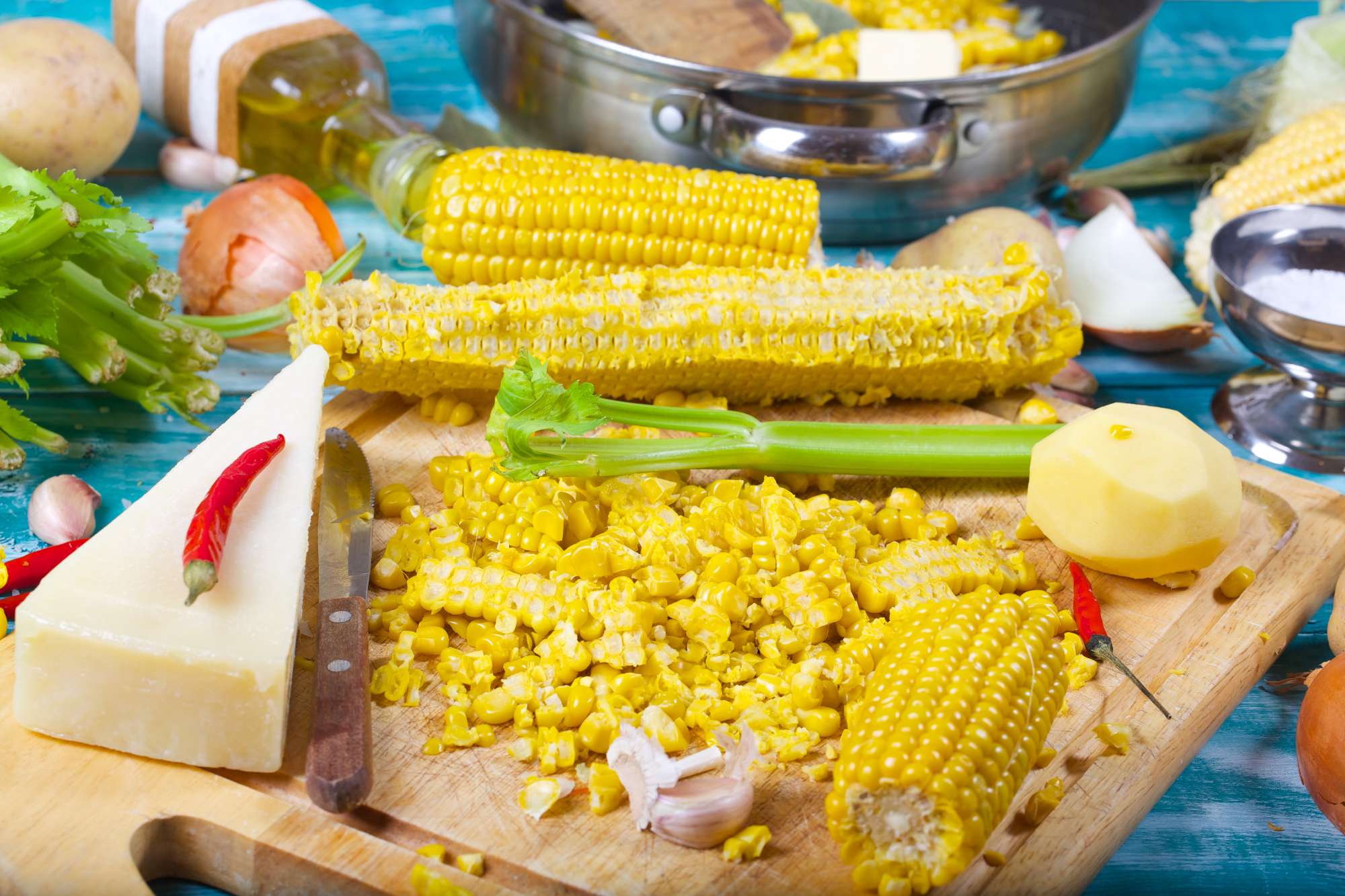
SWEET CORN AND POPCORN
Corn is a source of many vitamins and minerals. Notably, the amount varies widely depending on the type of corn. In general, popcorn is rich in minerals, while sweet corn (fresh whole popcorn) has more vitamins.
1. Sweet corn (fresh whole corn)
Sweet corn boasts several vitamins, including:
- Pantothenic acid
Also called vitamin B5, this acid is found to some extent in nearly all foods. Thus, deficiency is rare. - Folate
Also known as vitamin B9 or folic acid, folate is an essential nutrient, especially important during pregnancy. - Vitamin B6
B6 is a class of related vitamins, the most common of which is pyridoxine. It serves various functions in your body. - Niacin
Also called vitamin B3, niacin in corn is not well absorbed. Cooking corn with lime can make this nutrient more available for absorption. - Potassium
An essential nutrient, potassium is important for blood pressure control and may improve heart health.
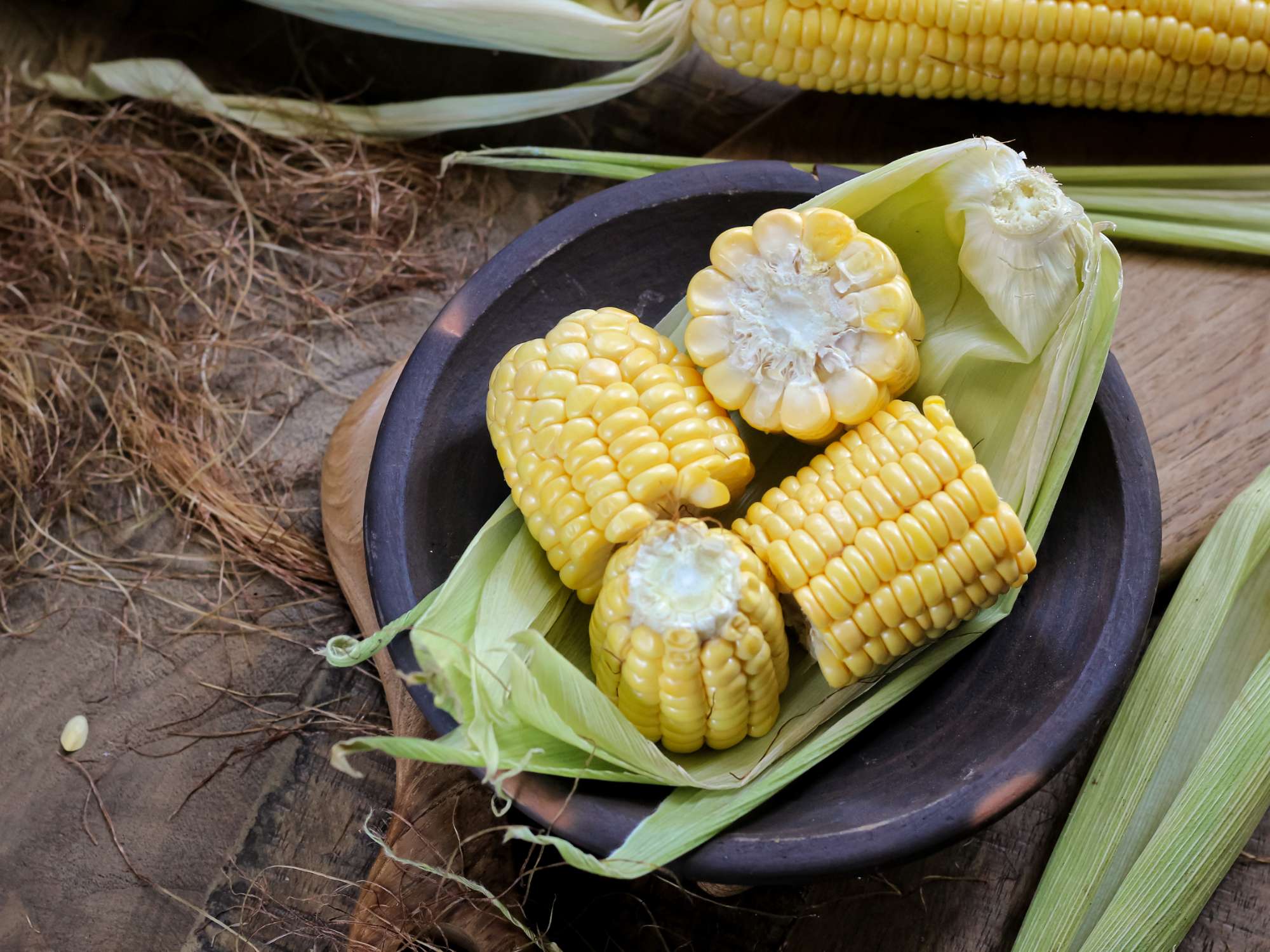
2. Popcorn
This popular snack boasts many vitamins and minerals, including:
- Manganese
An essential trace element, manganese occurs in high amounts in whole grains, legumes, fruits, and vegetables. It’s poorly absorbed from corn due to this vegetable’s phytic acid content. - Phosphorus
Found in decent amounts in both popcorn and sweet corn, phosphorus is a mineral that plays an important role in the growth and maintenance of body tissues. - Magnesium
Poor levels of this important mineral may increase your risk of many chronic illnesses, such as heart disease - Zinc
This trace element has many essential functions in your body. Due to the presence of phytic acid in corn, its absorption may be poor. - Copper
An antioxidant trace element, copper is generally low in the Western diet. Inadequate intake may have adverse effects on heart health.
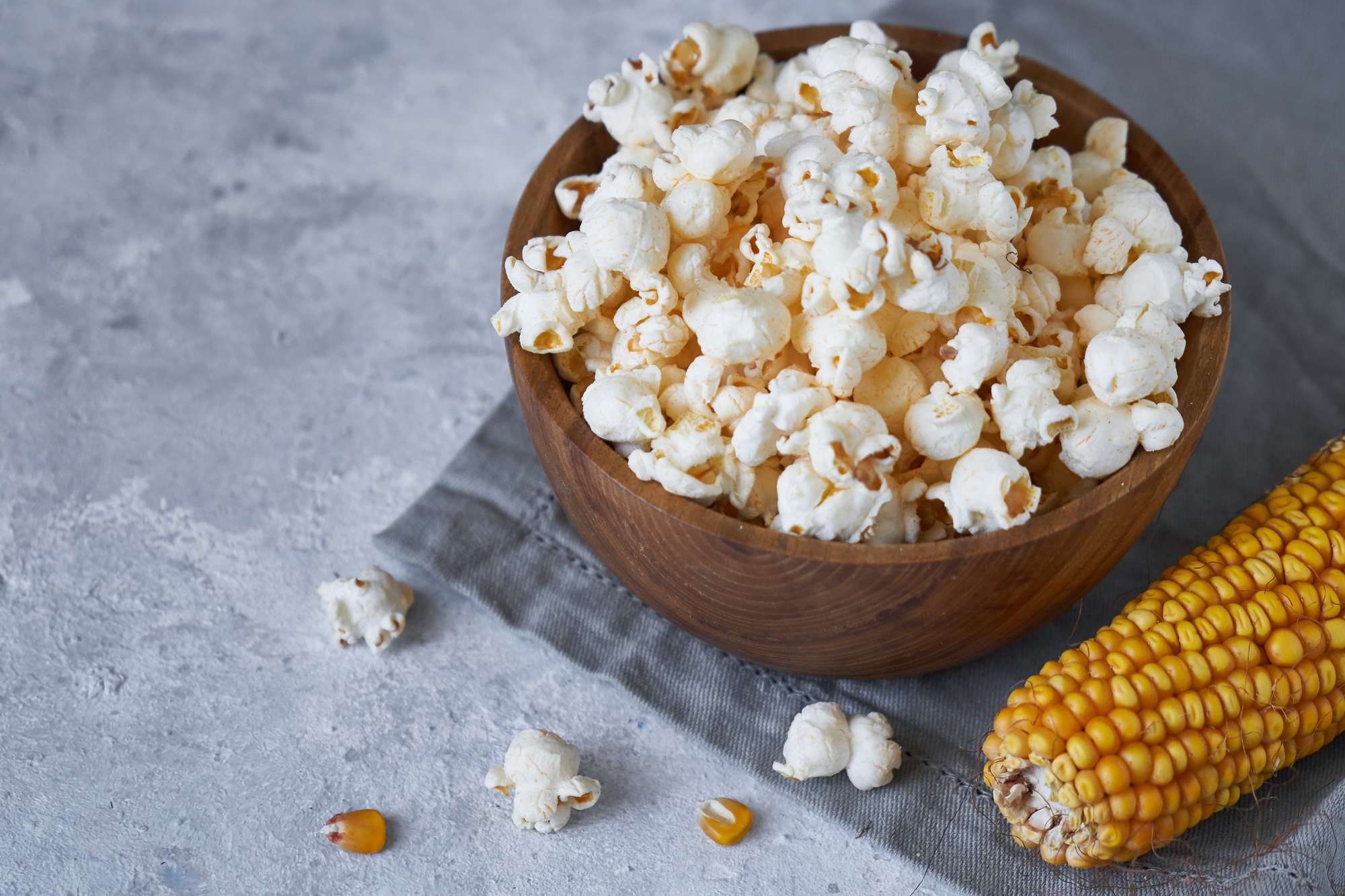
Here are the nutrition facts for 100 grams of boiled yellow sweet corn
- Calories: 96
- Water: 73%
- Protein: 3.4 grams
- Carbs: 21 grams
- Sugar: 4.5 grams
- Fiber: 2.4 grams
- Fat: 1.5 grams
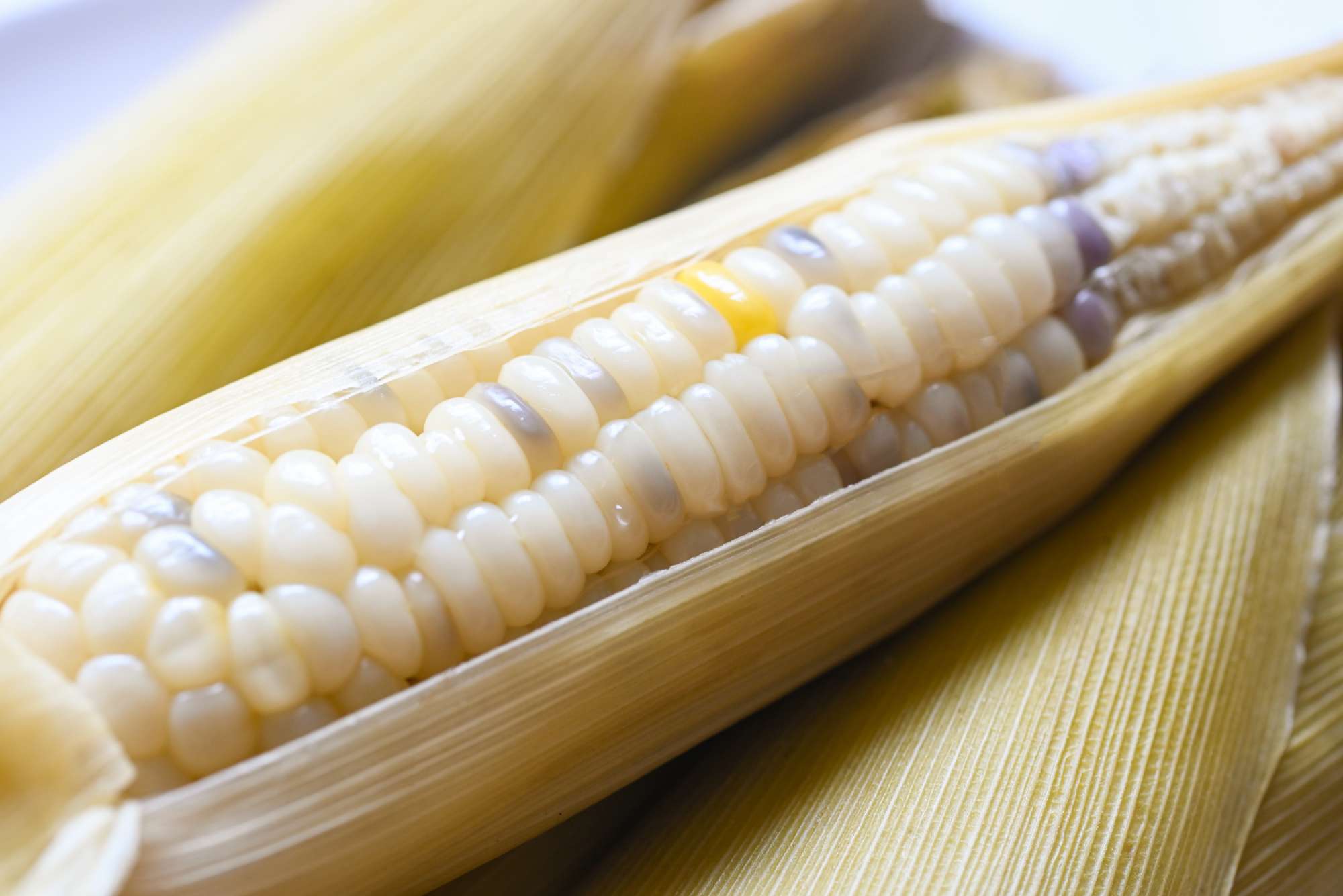
BENEFIT HEALTHY
Corn contains antioxidants and plant compounds that may provide a number of health benefits.
1. Eye Health
Corn is particularly high in Lutein and Zeaxanthin, these two carotenoids that may prevent cataracts and age-related macular degeneration (AMD). This is likely because lutein and zeaxanthin make up a large part of the macular region of eyes.
One study in 365 adults found that those who had the highest intake of carotenoids — especially lutein and zeaxanthin — had a 43% lower chance of developing AMD compared to those with the lowest intake. Therefore, regularly eating corn may promote eye health — especially for those who are at risk of AMD.
2. Aids in Digestion
The fiber in corn may prevent diverticular disease and other digestive Issues
Dietary fiber intake has been linked to a lower risk of several diseases, including heart disease and some cancers. Even more, eating enough fiber promotes healthy digestion and may protect you against gut issues. In particular, corn may protect against specific digestive issues, including diverticular disease, which is characterized by inflammation of the digestive tract.
One 18-year study in over 47,000 adult men associated eating popcorn at least twice a week with a significantly lower risk of diverticular disease. Based on these limited results, eating corn and popcorn may promote gut health and prevent digestive diseases. However, more research is needed.
3. Provides Protective Antioxidants
Some evidence suggests that colorful corn, such as blue corn, has powerful antioxidants. Purple corn has traces of quercetin, an antioxidant that helps reduce inflammation. Quercetin might protect against memory-related illnesses like Alzheimer's disease, too.
Research has found that quercetin helps induce apoptosis. Apoptosis is how the body kills cells that don't work correctly, which prevents damaged cells from becoming cancer.
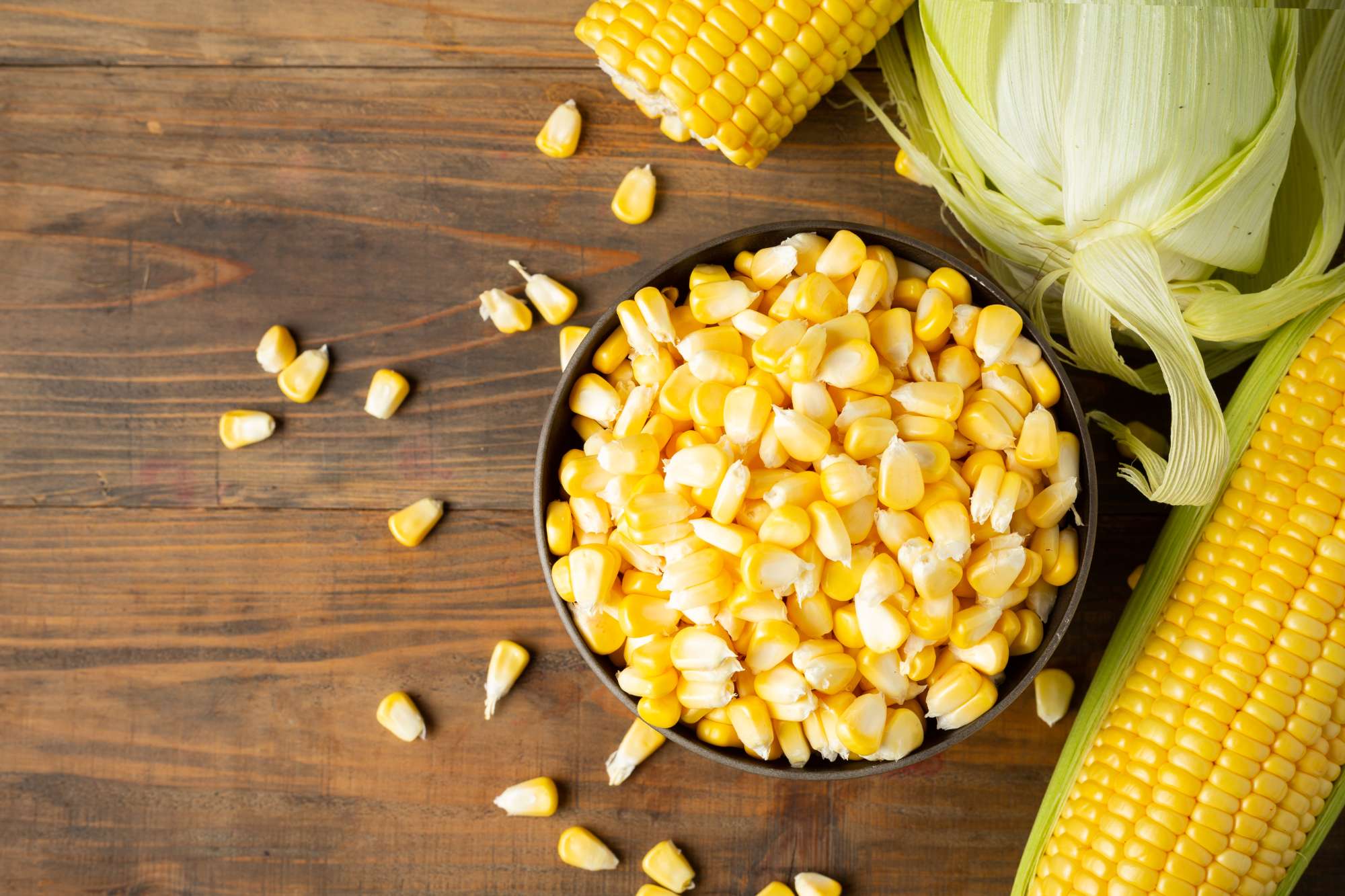
RISKS OF CORN
Corn is a starchy vegetable. That means it has sugar and carbohydrates that can raise your blood sugar levels. It can still be a healthy part of your diet if you don't overdo it. If you have diabetes, you don't necessarily need to avoid corn, but watch your portion sizes.
A small ear of corn is low in fat (about one gram) and sugar (about five grams). Still, consume high fructose corn syrup (HFCS) or corn oil in moderation. Research has found that HFCS may increase body fat, especially belly fat, and triglycerides.
Corn oil is high in omega-6 fatty acids, essential for overall health and cell function. Too many omega-6 fatty acids may harm heart and blood vessel cells.
Corn has antinutrients, which are compounds that keep your body from absorbing nutrients as well as it should. Soaking your corn can help remove many of them.
Often, corn gets contaminated by fungi that produce toxins called mycotoxins. Eating a lot of corn with these toxins can put you at a higher risk for certain cancers, liver problems, and lung issues. It can also slow down your immune system.
Some people who have celiac disease -- a disorder that causes an autoimmune response when you eat any kind of gluten -- find that corn causes issues for them. Corn may also cause a symptom flare if you have irritable bowel syndrome (IBS).
Although very rare, some people may have an allergy to raw or cooked corn. A corn allergy may be hard to diagnose and treat since many foods have corn starch. Consult an allergist if you develop symptoms like swelling or hive after eating corn or foods with corn.
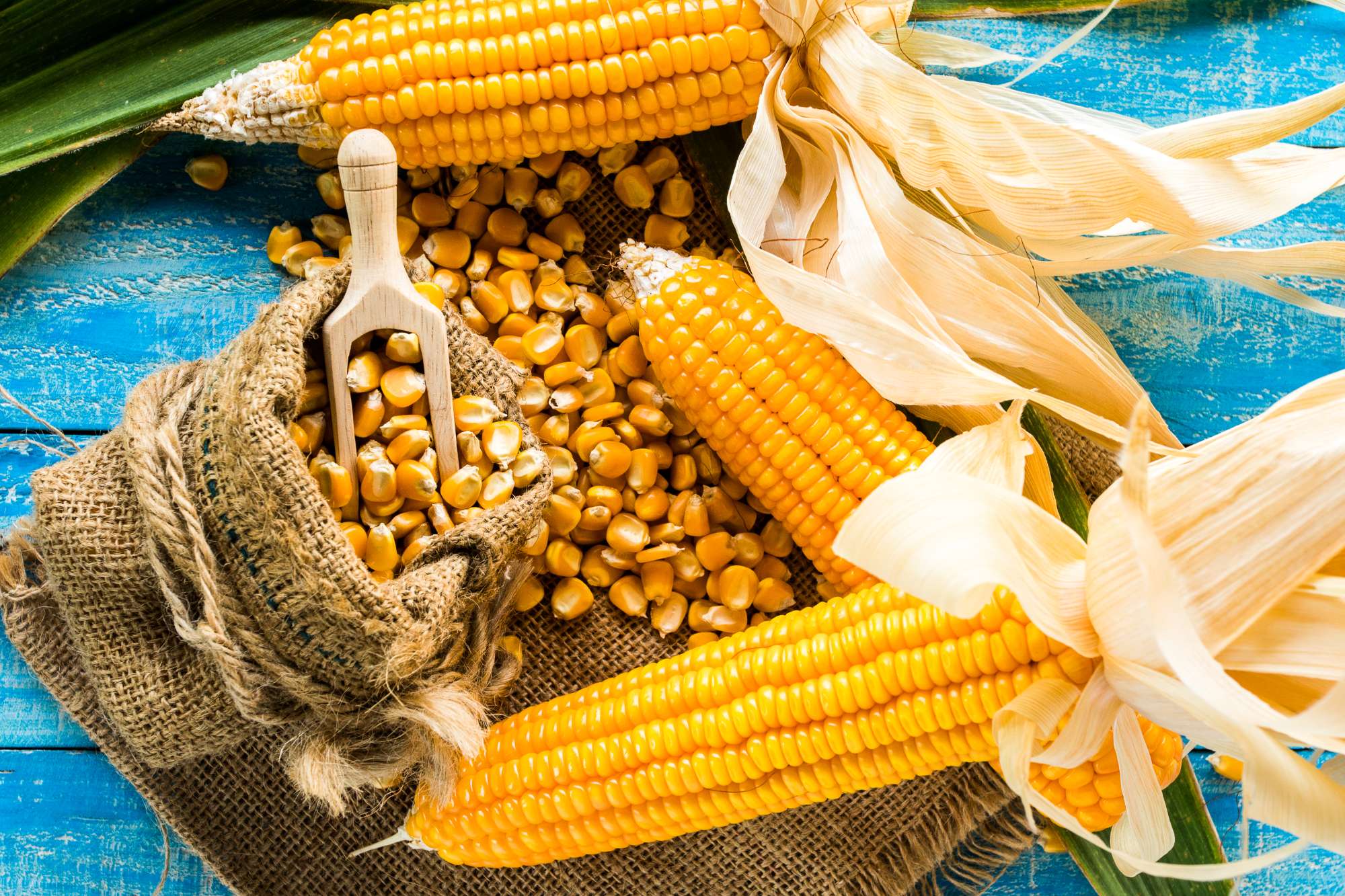
IS CORN GENETICALLY MODIFIED?
Over 90% of corn in the United States is genetically modified. The vast majority of corn grown in the United States is for animal feed and other food and industrial products. You can avoid genetically modified organisms (GMOs) by looking for "USDA Certified Organic" on the label if you buy bagged frozen corn.
Some people have raised concerns about genetically modified (GM) corn. Scientists can change the DNA in corn to make it more resistant to drought or insects, or to give it more nutrients. Farmers sometimes use this type of corn in their crops.
There's no evidence that genetically modified corn poses any risk to human health.
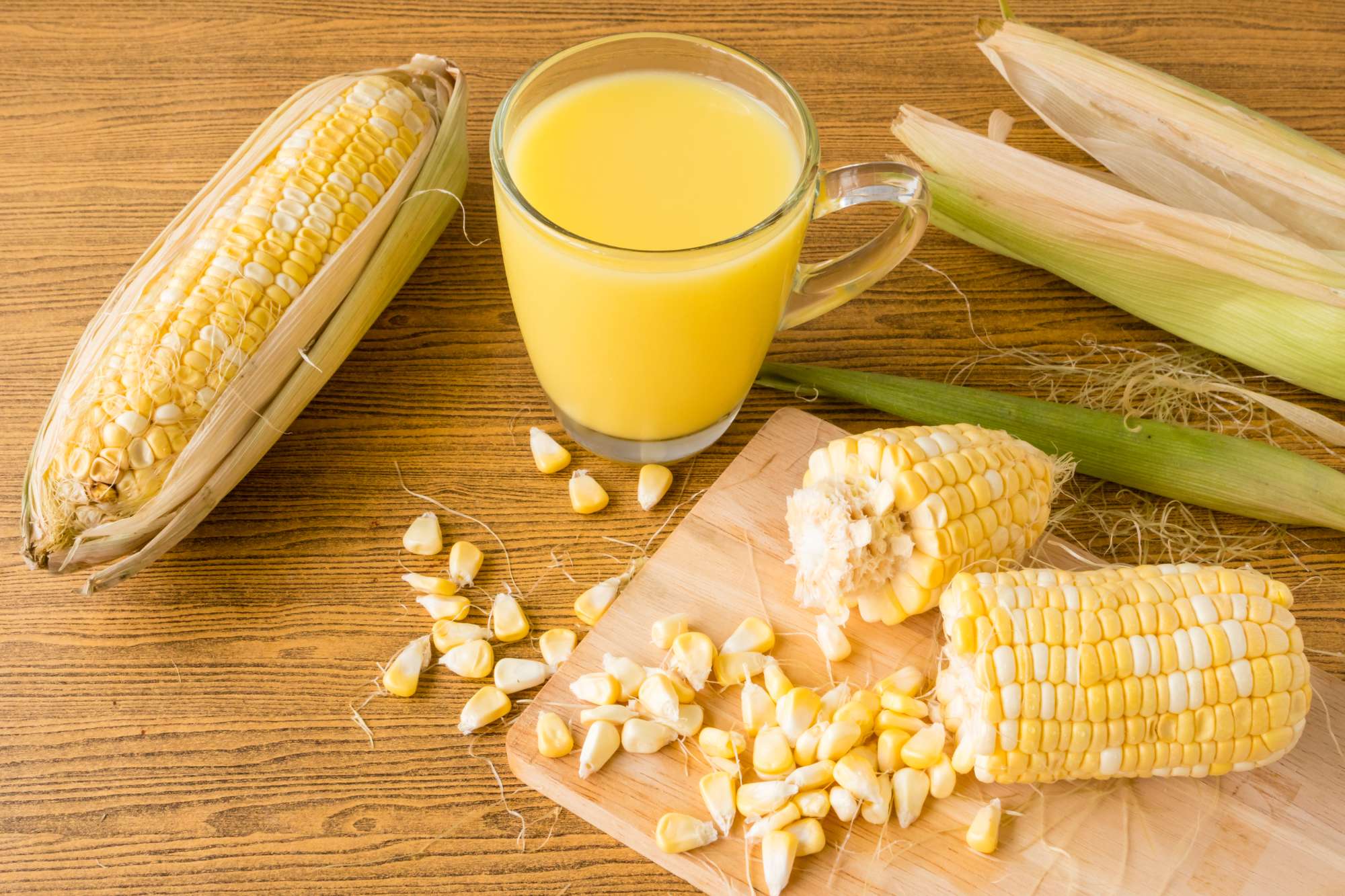
Compiled and written by Crocus Media